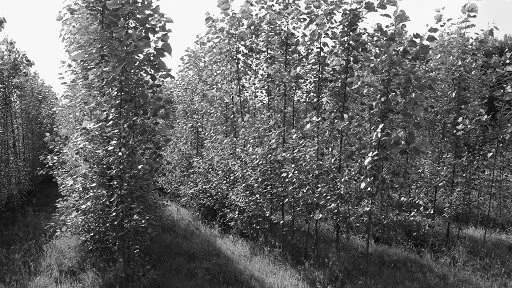Garden of Reciprocity
Jardins de Métis Competition
Grand-Métis, Québec, Canada
The Garden of Reciprocity reorients people to consider the critical interdependence of humans and plants. This reorientation is both literal and figurative, a reorientation of the body in relation to the plants that sustain us and a reconsideration of plants as living beings worthy of care.
The garden resists the biopolitics of mastery and subjugation that have characterized the industrial commodification of two primary species - poplar and willow – hybridized and cultivated in large scale plantations for pulpwood and biofuel. Instead, the garden draws upon an ethic of reciprocity, whereby the gift of care provided by these traditional medicinal species is honored and reciprocated through acts of plant rejuvenation.
A series of restorative rooms bounded by poplar saplings and planted with low growing medicinal species are situated on a gravel plane planted with scarlet willow rods spaced along a 1.8-meter grid. Wood beams, each 1.8 meters long, provide an elevated walkway linking the rooms. A proposed cycle of coppicing dramatically alters the shape and form of the garden over time while improving the health and vigor of the plants that structure its spaces.


